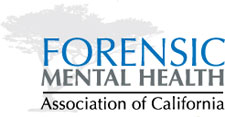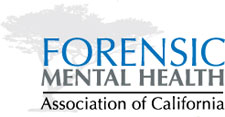Gang Involvement and Forensic Mental Health
Date & Time
January 10, 2022
9:00am - 3:15pm
Location
Virtual
January 10, 2022
9:00am - 3:15pm
Location
Virtual
Summary
This full day virtual training will begin with a brief overview of the different types of gangs that exist both inside and outside of the criminal justice system as well as a discussion on how immaturity, trauma and self-esteem can be key factors in the decision to join a gang. Gang culture versus gang behavior, the perceived benefits of gang involvement and current laws targeting gang members will also be discussed. The presenters will explain why being incarcerated prolongs an individual’s gang involvement, how involvement permeates the identity of its members and how to best approach mental health treatment when working with this population.
This training is recommended for mental health practitioners and probation.
This training is recommended for mental health practitioners and probation.
Presented By
Francis (“Frankie”) V. Guzman, JD
Attorney Frankie Guzman is the Senior Director of the Youth Justice Initiative at the National Center for Youth Law. Frankie leads a team of attorneys, policy advocates, and community organizers working to eliminate the practice of prosecuting and incarcerating children in California’s adult criminal justice system, reduce incarceration and justice system involvement, and increase developmentally appropriate services and opportunities for youth in their home communities.
Raised in a poor, mostly immigrant community plagued by crime, drugs and gang activity, Guzman experienced his parents’ divorce and his family’s subsequent homelessness at age 3, the life-imprisonment of his 16-year-old brother at age 5 and the loss of numerous childhood friends to community violence. By age 13, Frankie was involved with a local youth street gang. At age 15, he was arrested for armed robbery and, on his first offense, was sentenced to serve 15 years in the California Youth Authority. Released on parole after six years, Frankie attended law school and became an expert in juvenile law and policy with a focus on ending the prosecution of juveniles as adults.
Through partnerships with community organizations and advocacy groups, Guzman has helped lead California’s effort to reduce the number of youths in the adult system by passing legislation that established Youth Offender Parole Hearings, reformed Juvenile Transfer Hearings and eliminated prosecutors’ direct file authority. More recently, Frankie helped lead statewide efforts to eliminate California’s practice of prosecuting 14 and 15-year-olds as adults, prohibit the incarceration of children under age 12 in the juvenile system and secure approximately $60 million dollars to expand pre-arrest diversion programs and developmentally appropriate, culturally relevant community-based services for youth in CA.
Rahn Minagawa, PhD
Rahn earned his doctorate degree in psychology from the University of Southern California in 1983 after completing an internship at the UCLA Medical Center. He then entered military service where he attained the rank of Commander and served as the Head of the Child and Adolescent Psychology Division at the Naval Medical Center in San Diego. He completed a postdoctoral fellowship in child and adolescent psychology in San Francisco through the Comprehensive Child Crisis Services while in the Navy. After leaving the service, Rahn became a Senior Scientist for the Henry M. Jackson Foundation and participated in research at the Naval Health Research Center with a focus on reducing high risk behaviors in military personnel. He has specialized training in the areas of trauma, substance abuse, gang involved youth, child and adolescent development, and adolescent brain development. He has been an invited presenter for the California Center for Judicial Education and Research, the Judicial Council of California, numerous public defender’s offices throughout the State of California, and the San Diego County Juvenile Probation Department.
Attorney Frankie Guzman is the Senior Director of the Youth Justice Initiative at the National Center for Youth Law. Frankie leads a team of attorneys, policy advocates, and community organizers working to eliminate the practice of prosecuting and incarcerating children in California’s adult criminal justice system, reduce incarceration and justice system involvement, and increase developmentally appropriate services and opportunities for youth in their home communities.
Raised in a poor, mostly immigrant community plagued by crime, drugs and gang activity, Guzman experienced his parents’ divorce and his family’s subsequent homelessness at age 3, the life-imprisonment of his 16-year-old brother at age 5 and the loss of numerous childhood friends to community violence. By age 13, Frankie was involved with a local youth street gang. At age 15, he was arrested for armed robbery and, on his first offense, was sentenced to serve 15 years in the California Youth Authority. Released on parole after six years, Frankie attended law school and became an expert in juvenile law and policy with a focus on ending the prosecution of juveniles as adults.
Through partnerships with community organizations and advocacy groups, Guzman has helped lead California’s effort to reduce the number of youths in the adult system by passing legislation that established Youth Offender Parole Hearings, reformed Juvenile Transfer Hearings and eliminated prosecutors’ direct file authority. More recently, Frankie helped lead statewide efforts to eliminate California’s practice of prosecuting 14 and 15-year-olds as adults, prohibit the incarceration of children under age 12 in the juvenile system and secure approximately $60 million dollars to expand pre-arrest diversion programs and developmentally appropriate, culturally relevant community-based services for youth in CA.
Rahn Minagawa, PhD
Rahn earned his doctorate degree in psychology from the University of Southern California in 1983 after completing an internship at the UCLA Medical Center. He then entered military service where he attained the rank of Commander and served as the Head of the Child and Adolescent Psychology Division at the Naval Medical Center in San Diego. He completed a postdoctoral fellowship in child and adolescent psychology in San Francisco through the Comprehensive Child Crisis Services while in the Navy. After leaving the service, Rahn became a Senior Scientist for the Henry M. Jackson Foundation and participated in research at the Naval Health Research Center with a focus on reducing high risk behaviors in military personnel. He has specialized training in the areas of trauma, substance abuse, gang involved youth, child and adolescent development, and adolescent brain development. He has been an invited presenter for the California Center for Judicial Education and Research, the Judicial Council of California, numerous public defender’s offices throughout the State of California, and the San Diego County Juvenile Probation Department.
Learning Objectives
- Explain four factors in the decision-making process to join a gang.
- Describe three risk factors for juveniles joining gangs.
- Provide three examples of gang culture and three examples of gang behavior.
- List three developmental “youthfulness factors” that contribute to youth vulnerability to joining a gang.
- Describe three evidence-based methods for addressing destructive gang involvement.
CE Credit |
Intended Audience |
Experience Level |
|
5 CE Available for CPA, BBS, BRN, MCLE, CJER
Additional Continuing Education Information |
This training is intended for mental health and probation.
|
This training is appropriate for all level clinicians.
|

